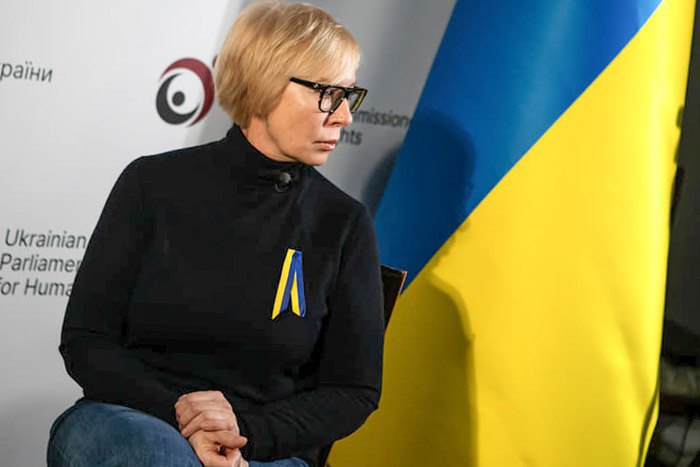"Their commander, a lieutenant colonel, saw a soldier wounded in the leg and shot him with the words, "Wounded horses need being shot."
Let's start from the captured. How many Ukrainians are being held captive by the Russians and how many captive Russians do we have?
I cannot tell you the exact figures - it is important for negotiations. But I can name the number of prisoners of war in temporary detention facilities (TDF - S.K.), the conditions of which we are inspecting. The number of Russian servicemen taking part in the military aggression against Ukraine in the hands of the Russian Federation is close to 300. These are confirmed data. We know that some of the Russian POWs are in other units of the Ukrainian armed forces. When we check these facilities, we will have data on them and the conditions of their confinement. We are currently conducting monitoring visits.
I can tell you that in Kyiv I saw for myself 34 servicemen - 24 privates and 10 officers.
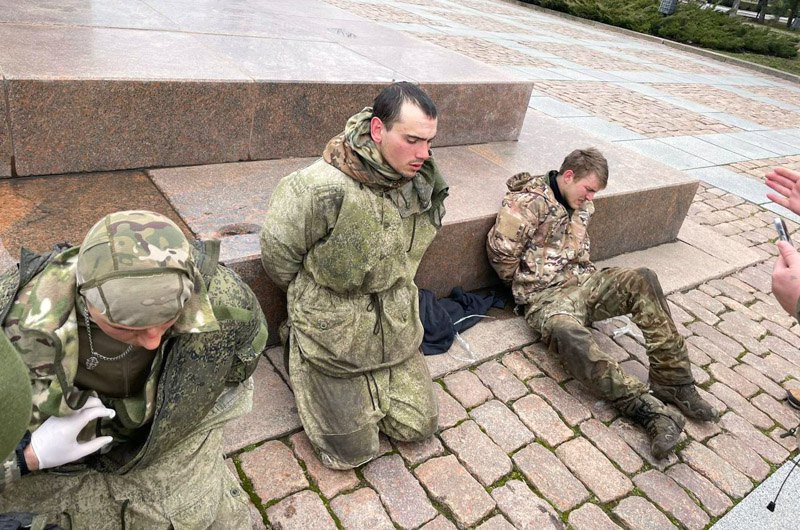
Tell us about them in detail, please.
I spoke to them personally. Under the Geneva Convention, officers and enlisted men have to be held separately. That is why they are held in two cells with 24 and 10 people each. I went to them and introduced myself. I asked them how they were doing. They said they felt like having something sweet and smoking , there was nothing else. "Sweets," I told them, "are in the Russian Federation, and smoking is forbidden here. I was surprised at how these soldiers of the "second army of the world" looked like. They were in rubber boots. I thought they had changed their boots before they were sent to prison. But they said no - it was their uniform, "so that their feet wouldn't get wet. They were no longer wearing their "uniforms" - they were running, some for three days, some for a week, in order to reach the place where they could return to the Russian Federation or Belarus. And they ended up in our villages, saw the Ukrainian flag and surrendered. Practically all 23 Russian soldiers surrendered on their own.
They started the conversation with the legend "about training", but it quickly dissolved. One of the soldiers told terrible stories about the attitude of their own commanders toward them. He said that when they were ambushed, something blew up and everyone fled. Only one tank unit got together. Their commander, a lieutenant colonel, saw a soldier wounded in the leg and shot him with the words: "Wounded horses need being shot. Then the soldier understood that he had to escape. As night fell, he just ran away. It was on February 25, and on March 1 he came to "some place", saw the Ukrainian guards and turned himself in to local people.
Some of them quoted their own regulations that they could not shoot pregnant women. "So you bombed them," I say. And they admit that they saw this at the training sessions (they were shown by the Ukrainian investigators). They saw the crematorium in Armyansk working and being taken from place to place.
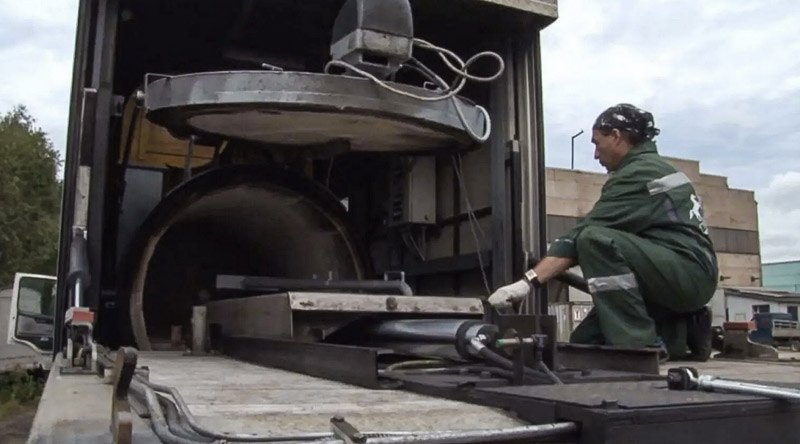
You mean the mobile crematorium?
Right. The investigators also showed them. They showed refrigerators with bodies (of Russian soldiers - S.K.) that no one took away. They themselves say that once, when they retreated and then started attacking again, they crushed their own tanks - because there was nothing left to do but go forward, otherwise they would have been shot dead.
I told them about their rights as prisoners of war. I asked them if they were allowed to call their relatives. They said they had, they telephoned and said they were "safe". Also, all received medical assistance. Some of them were operated. One person was without a leg, another one was in a cast. One more needs daily bandaging and he receives it.
I also told them that I could call their relatives - what would they want to tell them? They gave me their phone numbers. Then we had talks with the relatives.
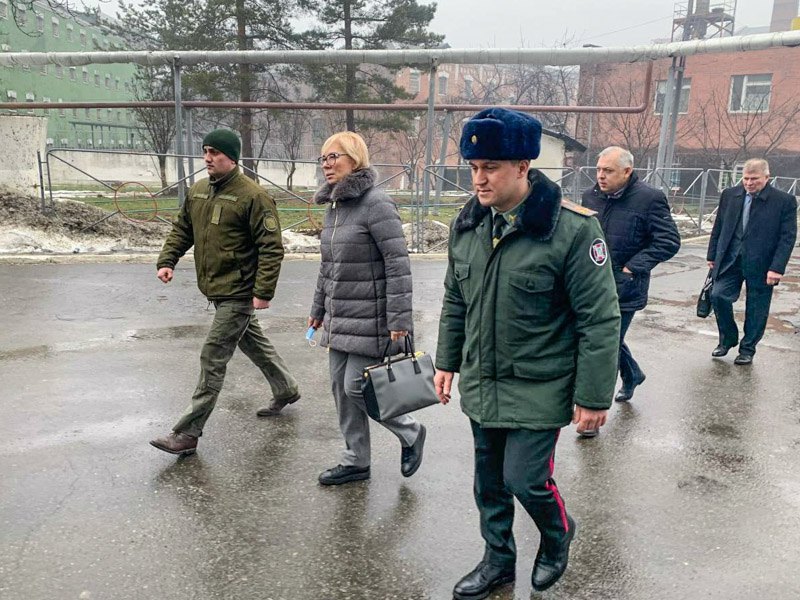
How did the officers behave during your visit?
One of the officers was a colonel, formerly a participant in the war in Chechnya and now the head of Special Forces, who was also wounded. He said he had the task to take Kyiv in two days. They tried to do it, but on February 25 they were ambushed, wounded and captured.
The major, commander of the tank regiment, who was also wounded, but he was provided with all the necessary manipulations, refused to talk.
The commander of the secret unit tried to "break me through" , but it was impossible to "break us through".
The senior lieutenant said that he had not watched TV since 2013. When I asked him how he knew about "denazification", he said that there’s the authorities. The commanders persuaded me that they would be greeted with flowers in Ukraine. But when they saw the resistance of the Ukrainian armed forces, they realized that the Ukrainian soldiers would never surrender and nor would the local residents do so. Then they decided to surrender themselves, but they didn’t make it, because they had already been taken prisoners. One warrant officer also surrendered himself.
None of them said they needed protection or that they had been pressurized into anything. But almost all of them said that they could not return home because of the following up in their motherland. They understand that they will be "chased".
How much does it cost the state to keep one prisoner a day?
It varies, depending on the place. Where these people are taken into custody, the cost is around 50 hryvnias. In general, 50-100 hryvnia, as well as our usual detainees. Not much. It is not about money. It is about the fact that we have prisoners. We know that our people were also taken prisoners.
It’s a question of exchange, understandably.
"They're not like us, do you understand? They will not fight for what belongs to them and for their people, like we fought on Maidan, like we are fighting now."
How are the lists for the exchange process formed? Who works on them - the Ombudsman's office, the ? Is there a joint center?
Let me explain how things work. We have a free hotline, which employs 32 operators who take up to 1000 calls a day. We work in four areas - humanitarian assistance, humanitarian corridors, registration of newborns and the dead, for example, if the relatives are in another place. But the largest number of calls is about the search - military and civilian. We received already more than 6,500 such calls related to 15,000 which are being looked for.
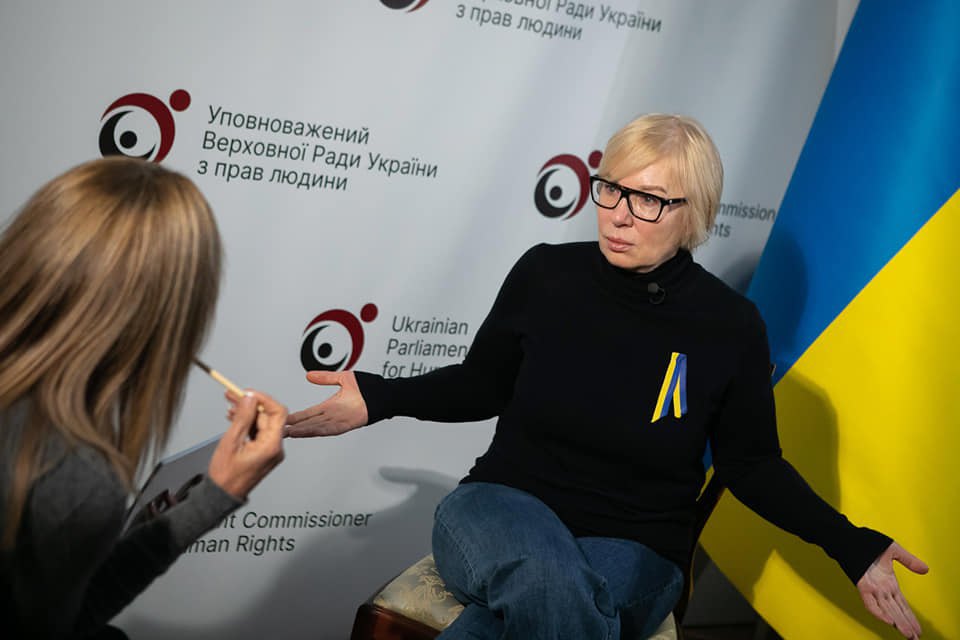
We put down every story as a military atrocity, because kidnapping people and taking them into captivity is a military atrocity. Then, we send all the information and materials about each person, who is searched for by their relatives, to the Joint Center for the Release of Displaced and Disappeared Persons. This center receives all the information. People in charge can see who has been taken prisoner, and then the list of people for exange is made at the highest level. And it takes place, of course, with the consent of the other party.
On the Ukrainian side there was an initiative for Russian mothers who want to take their children from captivity in Ukraine. It was reported that they could be picked up on the border with Poland, taken across the country, and then given their children in Kyiv. Is this a working scheme or just an idea at the moment?
The scheme works, as long as these people come. I spoke to the parents and wives of Russian Federation citizens taken into captivity, but they say they cannot come, even those who want to. Some of them say that their children are on mock drills, some ask why we captured them and when we will release them. One detainee asked to call his pregnant wife, because she was about to give birth, and he had not been in touch for two weeks. She said that every day in the morning she would go to the military unit and ask for the man's return. There were those who wanted to know what to do. I suggested joining our Committee of Soldiers' Mothers, going out into the streets and pressing Putin to stop the war. But they are not like us, you understand? They will not fight for what belongs to them and their own people, as we fought on the Maidan, as we are fighting now. When we know about every disappeared person, we know their special features, we know who we are looking for. We are also looking for them on the territory of the Russian Federation. Volunteers help a lot.
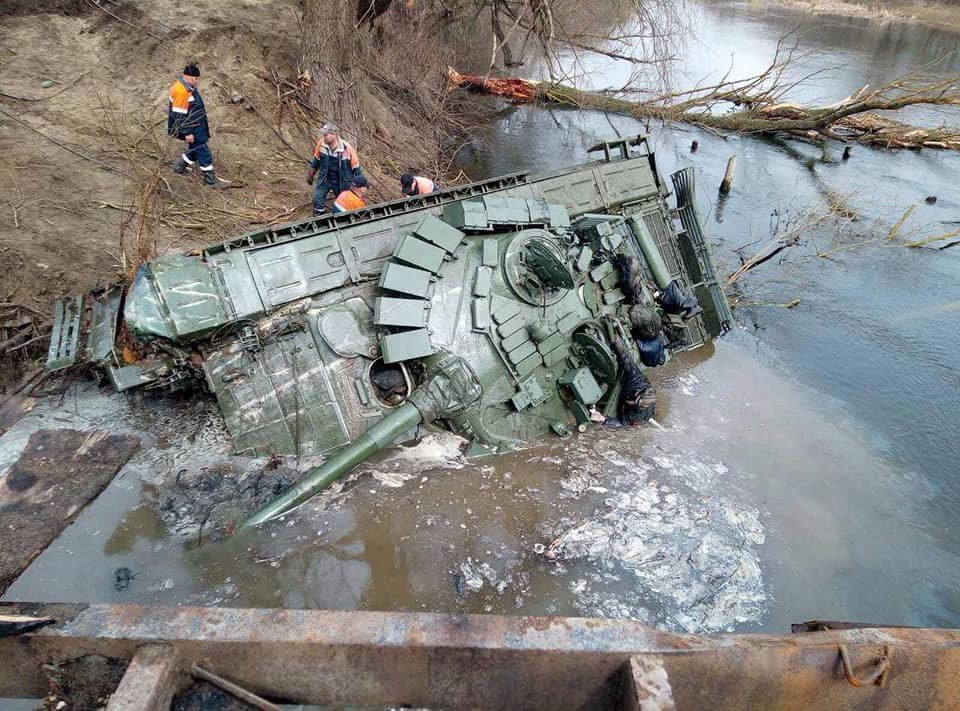
Do you know where our prisoners of war are? The second exchange, when 86 servicemen, including women, were returned to Ukraine, took place in Bryansk. Can we conclude from this that a lot of our servicemen and civilians are in Bilorussia and not in Russia?
In Bilorus as well. And in the Russian Federation. For example, our prisoners of war are in the Kursk detention center. There is confirmation of the number, but we will not talk about it now, so as not to do harm to anyone. As for Bryansk... When Belarusians say they are not taking part in this war, it is not true.
Will Belarus be held legally responsible for its actions?
Of course. Belarus is also a war criminal. They are also involved in the detaporation of our prisoner of war. They cannot be there (in Bilorussia - S.K.) in general. According to the Geneva Convention on the Conduct of Military Personnel, they must be subject to the same conditions as other troops of the country that has taken them into captivity. They cannot humiliate them, they cannot put pressure on them, including psychological pressure. But we know from the accounts of our captives that terrible things were done to them.
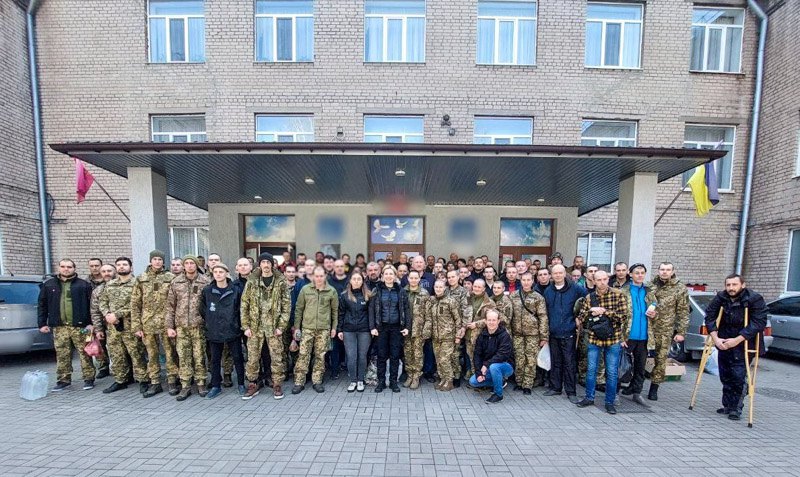
During the second exchange, 15 servicewomen were returned to Ukraine, but apart from everything the russians cut their hair completely. They were forced to get undressed in the presence of men and were abused.
In prison language a haircut means "to humiliate". These are the animal "laws" of the Russian Federation. People are forced to get undressed, and then they are forced to squat, so that she, especially a woman, will not be able to hide anything . This is inhuman humiliation. And they did it with our women. They wanted to use them in some propaganda films, so that they would switch to the Russian language, so that they would do what they would never do. Only thanks to the talks at the highest it became possible to get them back.
Similar atrocities were committed in Yugoslavia and Chechnya. I would like to ask: what are the penalties for violations of the Geneva Convention? And do they exist in general?
I think we should look at Yugoslavia and Rwanda. There are examples there that we all know about. There is the UN International Court of Justice and the International Criminal Court. That is why we need to speak loudly about the creation of a special tribunal, which will accurately identify the perpetrators and their actions, and there will be punishment.
Well, the International Court of Justice has already ordered Russia to stop the war. Pieskov said that they are not an order to them.
As for the exchanges, I wanted to ask you one more thing, if I can speak about it. The frontiersman from Zmiyiny Island, the author of the famous phrase.
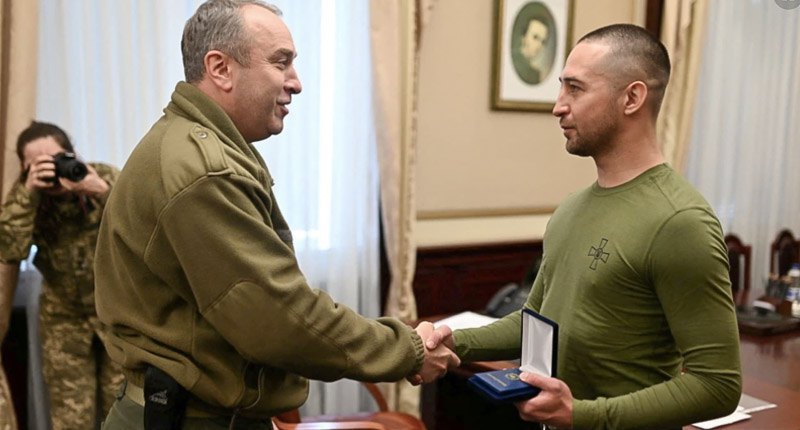
I can't say anything about it, unfortunately. We have a list of all the captured people from Zmiyiny Island. We keep in touch with their parents and relatives. But we keep this information where it should be kept, so as not to do harm to anyone.
There has been a statement about the creation of a camp for Russian troops. Where will it be housed and how will it work?
Work in this direction is ongoing. Indeed, there is such a position and such a goal to create a separate camp. We have enough prisons that do not work, in which there are no retained persons. We can transfer them to the Ukrainian armed forces, to the Ministry of Defense of Ukraine, and make such a camp there.
When will it be?
This is still not the end of the process. As soon as the place is determined and the transfer is completed, we will be able to talk about it. And I, as ombudsman, will be exercising parliamentary control over the observance of the rights of Russian Federation POWs. This is also my mandate. Today, the Geneva Convention on POWs of the Russian Federation is being observed by Ukraine.
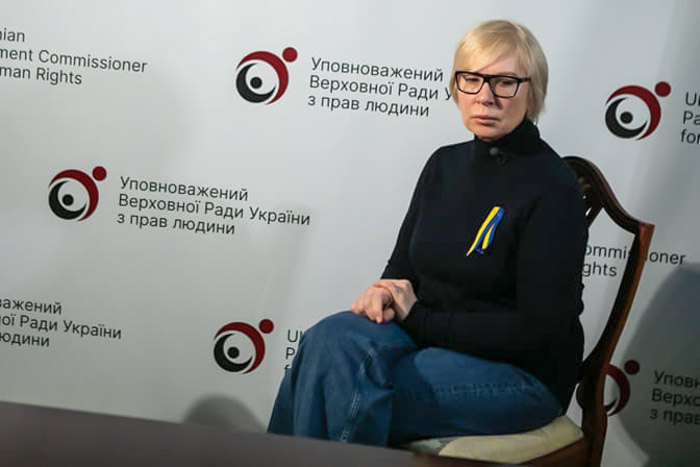
Can Russian prisoners of war be enlisted under this convention to clean up the rubble they created? I'm not even talking about construction work. Well, anything at all?
Now they are under investigation. The investigation will establish their guilt. Until the investigation is done, until they reach some stage of their trial, it is impossible to use them.
The other day you wrote about the abuse of women and children and not only by russian soldiers in Irpen and other settlements in Kyiv region, but then it was withdrawn. Why?
We decided to disseminate this information only among international law-enforcement organizations so that they would use it.
The Ministry of Justice has established a special joint group, which is engaged in the fixation of military atrocities. Tell us in more detail how this work is done and why it is necessary for further prosecution of Russia.
We are working in accordance with the recommendations given by the UN Development Programme on February 26. We work with the UN High Commissioner for Human Rights, all UN institutions, the Council of Europe, the European Union and law-enforcement organizations, with international expert groups created after the resolution of the UN Security Council on March 4 and we are trying to do our best to have a special tribunal.
On February 24, according to the regulations, we record all military offenses and twice a day at 10 a.m. and 5 p.m.- we send all the information to the relevant authorities for fixation. For automation, we created a telegram channel, a chat room - "Stop Russian aggression", where we upload all information about military atrocities with the technical support of the European Parliament. Any citizen can access the Telegram channel to take a photo and write a comment. We have special staff who filter everything, and this is how we record atrocities.
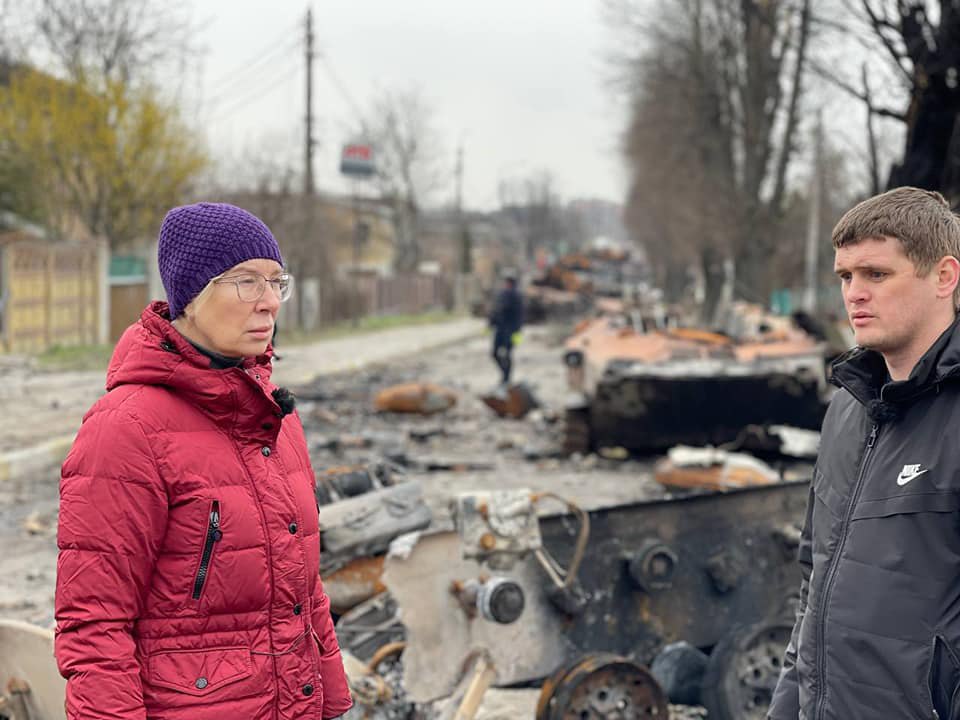
This is part of the work of the ombudsman during the period of martial law. According to Article 10 of the law "on the legal provisions of the state of war", the President, the Verkhovna Rada, the Cabinet and the Commissioner for Human Rights cannot suspend their activities. That is why we provide assistance to the citizens in resolving humanitarian issues and stop atrocities committed by the Russian troops. We make a description, referring to the article of the Geneva Convention or the Rome Statute, or the Statute of the International Criminal Court. And this evidence is placed on the desk of the prosecutor of the International Criminal Court, among others.
"There are already 4,240,000 refugees."
There is such a kind of military crime as forced deportation. In a recent conversation with us, Mariupol Mayor Vadym Boychenko said that a few thousand Mariupol residents were removed from the city by force, under the guise of evacuation to the territory of Russia and the "L/DFR". Is there any information about these people? Where are they - in Russia or on the occupied territories of Donbas? And how can these people return, where can they turn to?
We first learned about the filtration camps and deportation of people before February 24. We wrote that on February 18, 90,000 Ukrainians were taken out of the Donetsk People's Republic to the territory of the Russian Federation. At that time we appealed to all, including international law enforcement organizations and the UN, but no one paid any attention to it. Well, maybe 90 thousand people decided to "engage in tourism".
Then we learned that 1237 children were taken from orphanages where there were orphans deprived of parental care to the Rostov region. And now, according to the Children's Ombudsman, they are proposing to adopt 270 children. All this was recorded.
After February 24 the removal of people became widespread. We know exactly. Why I say "exactly", because there is a statement by Moskal'koja (the Russian ombudsman - S.K.), unofficial, because they refuse to accept any mail from us, but we have information that about 600 thousand of our people are already in the Russian Federation - in the Volodymyr, Omsk, Perm, Chelyabinsk and Sakhalin Regions. There are witnesses who called us on the hotline in Sakhalin. Out of the 600,000, over 117,000 were children. In this case the forced deportation has the characteristics of genocide. The forcible transfer of children and other groups to a territory that is conducting an armed conflict is also a sign of genocide. We know about the new filtration camp in Mangushi. Now everyone who goes to Berdyansk from Mariupol has to undergo filtration, brutal and long. The occupiers are simply conducting a clean-up operation.
What are the characteristics of the people in this camp being "filtered"? What is going on there?
People are asked if they are for or against Russia. Are they "Nazis" or not. Whether there are relatives who stayed in Ukraine. We have testimonies of people who were taken from filtration camps to Taganrog or Saransk.
For instance, my colleague, who works in the ombudsman's office: all his relatives who lived on the right bank of Mariupol went to Zaporizhzhya, those who lived on the left were taken to Suzdal in the Volodymyr Region. Since March 20, there was no contact with them. Their telephones and passports were taken away.
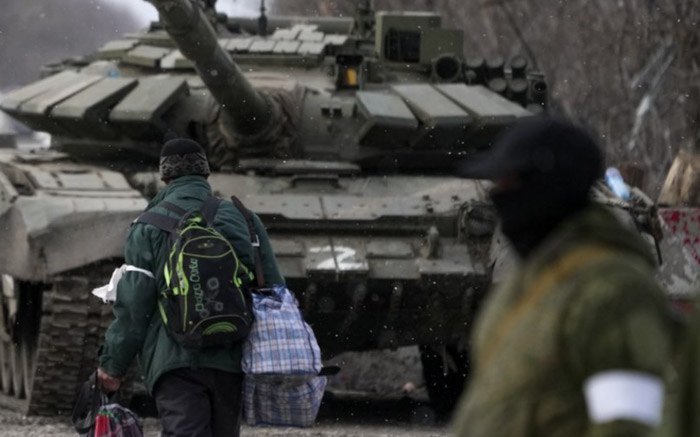
We had a meeting of the General Assembly of the NRI - this is the group of ombudsmen of the European states, which includes the Russian Federation - and I spoke out, I took the position that the deportation was a genocide of the Ukrainian people, that it was proof of the Russian Federation's atrocities against Ukraine. And she proposed to create an international working group consisting of ombudsmen from other countries and to establish the International Red Cross in order to make such corridors for the return of our people to the Motherland. Mr. Moskalkova, if I may say so, was eager to do so. Now we are in the process of identifying the states that want to join this group, and we will try to work out such a mechanism.
I sent an official letter to Moskalkova to receive information about the people who were taken away. There is no response. I think they themselves have no answer, because they do not care who these people are, what their surnames are, but they really want to take as many of our people to the Russian Federation as possible.
Compare two figures: thanks to humanitarian corridors, which the authorities are trying to do with the consent of the Russian Federation, slightly more than 250 thousand of our people were taken to the safe territory of Ukraine. And Russia took 615 thousand to its side. What kind of humanitarian corridors, humanitarian missions can we talk about to which parties are required by the Geneva Convention? Only yesterday (April 6) more than 6 thousand were taken out.
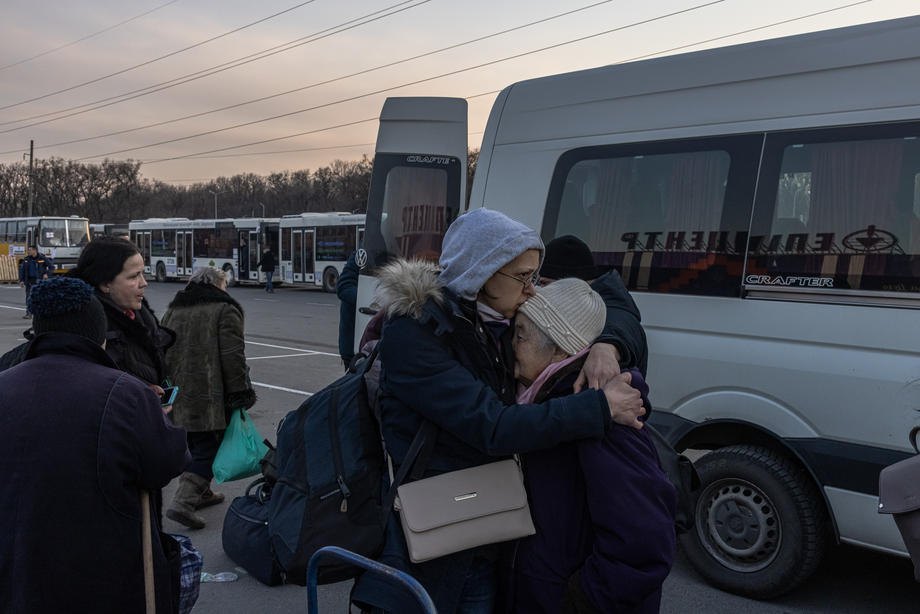
The vast majority of these 615,000 did not want to be relocated?
Of course they did not They (the Russian authorities), of course, make staged pictures and videos, that one family tearfully asked to take them away, but people say just the opposite. Some telephoned and said they would take them to Taganrog, to a kindergarten. A 92-year-old woman, who could not move herself, was carried by bus to the kindergarten, where they slept on a bed on some shields. It was cold, they did not sleep, then they put them on a train for six days and took them to Suzdal. Then the connection was cut off. And there are a lot of people like that.
I specifically want to ask you about refugees. According to the United Nations, since the beginning of the war more than 4.2 million Ukrainians fled the country.
4 240 000. And more than 2 million of them were children.
Mostly children, young people and women, right. Did you raise the issue of protection of their rights on the territory of other countries? There have been claims that the risk of them being caught up in the situation of human trafficking has increased.
I had a meeting to find out where these people were located, in which countries, because the information differed.
We were dealing with Poland. After February 24th, 2.5 million of our people left there and before that there were 4 million more. 400 thousand of our people returned to Ukraine. Thus, there are close to 6.1 million Ukrainians, and there are 3.5 thousand registered children. And no one can say how many people received a certificate of temporary protection, as required by the declaration of the European Council.
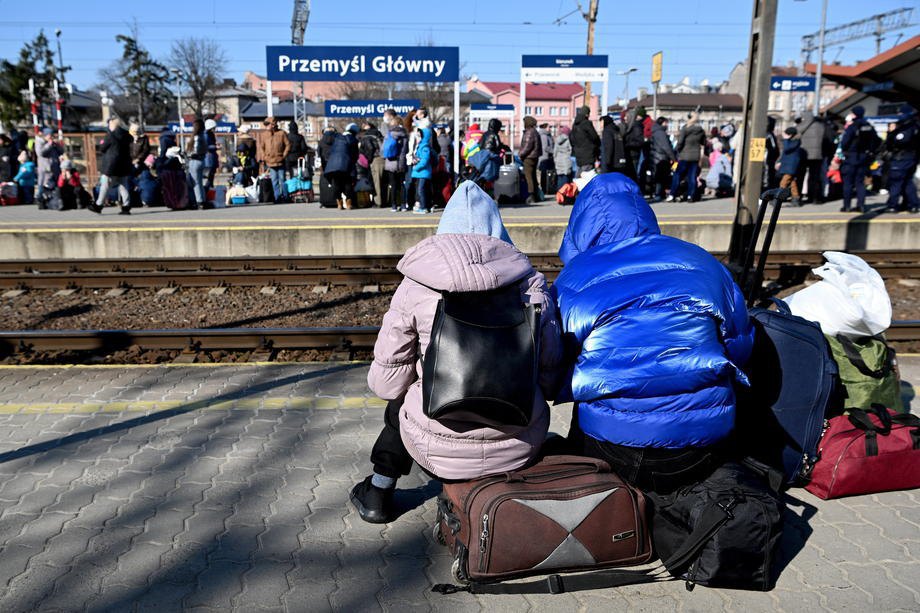
The mechanism is the same for all. If a person requires protection temporarily , he or she will receive a corresponding permit from any state that has adhered to this declaration, and may stay on the territory of that state for up to a year instead of 90 days. If the military actions in Ukraine continue at the time of the end of the permit, they will be extended for another year. This is not the status of a refugee, this is the status of temporary protection. That is why the status of a refugee requires a completely different procedure - you need to have, for example, evidence about being chased and so on. And these data about "temporary protection" that I have, according to the countries, are very disturbing.
I was in Belgium, and I checked how our citizens receive a certificate of temporary protection - very difficult. I met with my fellow ombudsmen in the cities where our people come. The process of obtaining certificates has just begun. People were registered, and now they have to decide on housing in the comunes (Belgium's smalest administrative unit - S.K.). Those who have found dwelling - more than 60%. 40% still do not have a place to live. Volunteers help them, take them to the communes, and different communes have different attitudes to our people, different conditions for keeping the permit. It is not clear whether health insurance or a work visa will be provided in the future.
I met with my friend from the Czech Republic and I can say that I was satisfied with the conversation. There really is a fixation and issuance of visas. One week ago there were 218 thousand such visas, and when they say the exact figure, it means that everyone is under protection. People receive permits, free travel, medical insurance and a work visa.
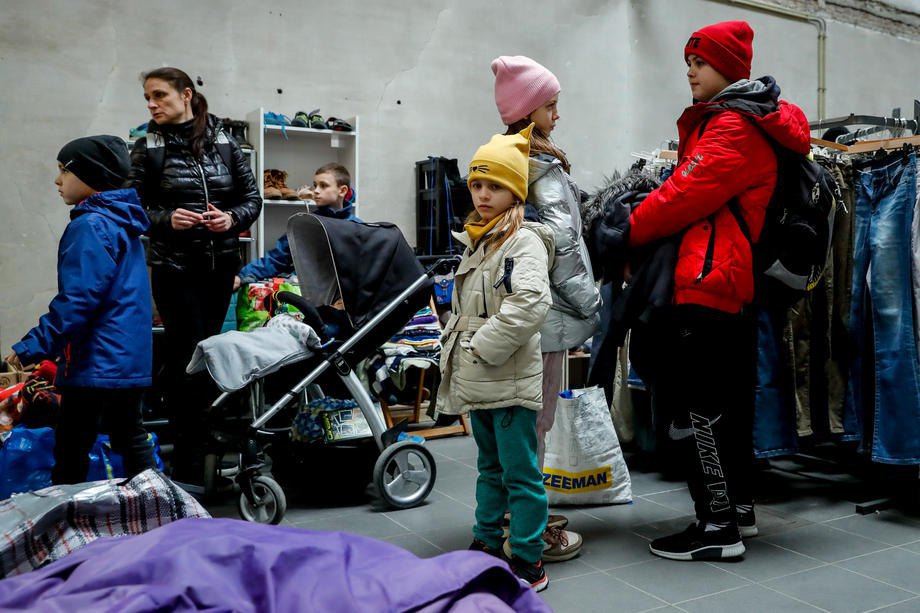
But I want to say one thing: all countries have support for our people of working age, there are certain programs for children, the possibility of studying Ukrainian language in some countries, and programmes of adaptation to French or English language education, but there is no program for elderly people. In the past few days I spoke in front of the UN special group dealing with the issues of elderly people, and I had a request to form such programs. Because there are also a lot of old people abroad. And they have already gone through a lot and need support.
It is clear that your activity intensified during the war. But what was the most emotional moment for you during those days?
You asked, and I got horrified. Of course, it was Bucha. You know, I had a lot of interviews, during which the British and Americans asked me what was the evidence that the Russians were using phosphorus bombs, weapons prohibited by the Geneva Convention, etc. And I gave evidence provided by law enforcers, volunteers, soldiers who were on the ground. And I saw Bucha with my own eyes. And it's impossible to endure. It is simply impossible (the voice begins to tremble - S.K.).
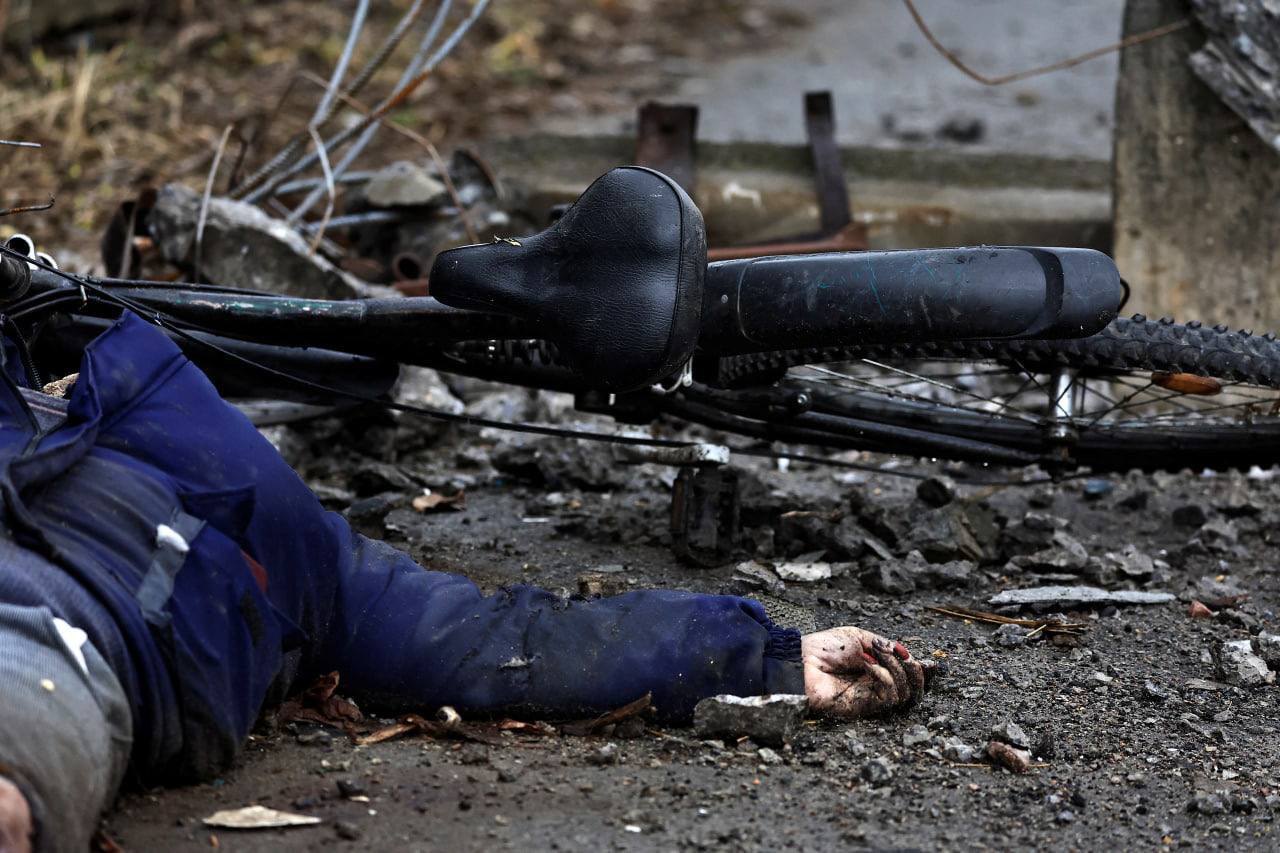
"When you see a manicured hand sticking out of the ground... Or a piece of beige heart-patterned knitted fabric, and you realize that it's this fabric... this fabric, it's most probably child's clothing... There was one sneaker... I picked it up - size 33. Exactly like my granddaughter's. Do you understand? (tears, - S.K.), These scums must be killed!
And when foreign partners ask what help we need , I ask for weapons, weapons and weapons for Ukraine in the first place".
